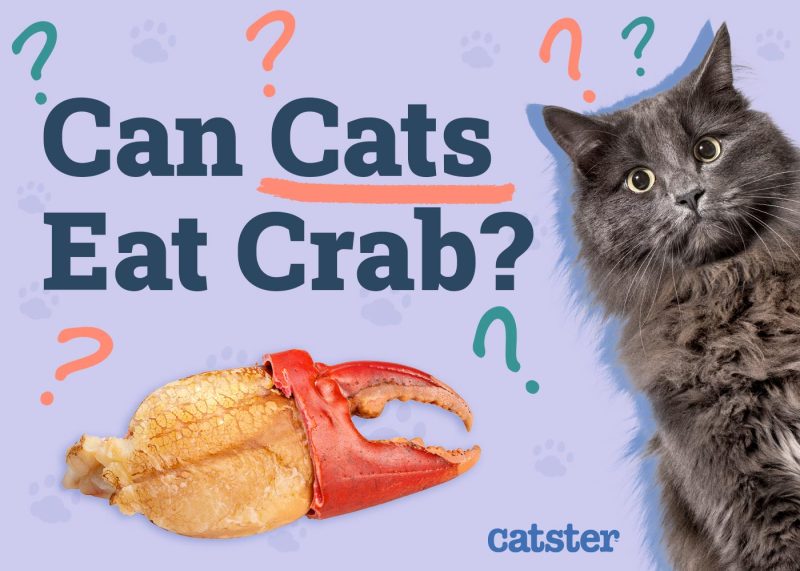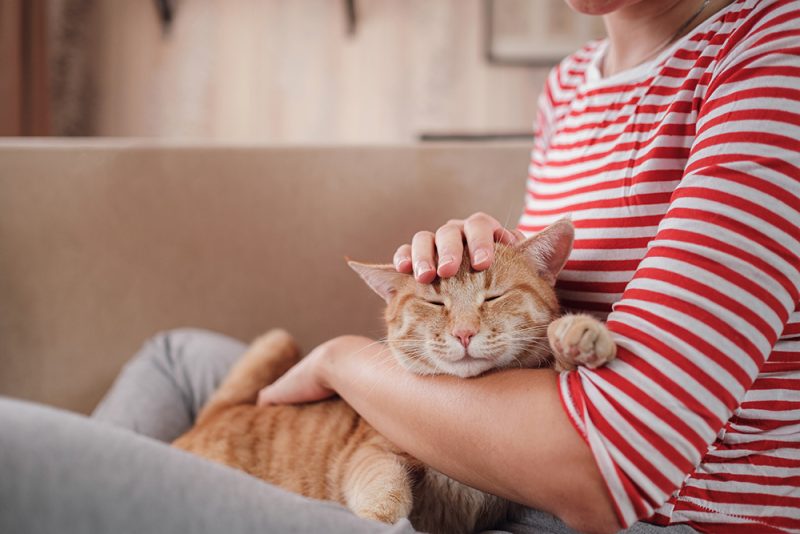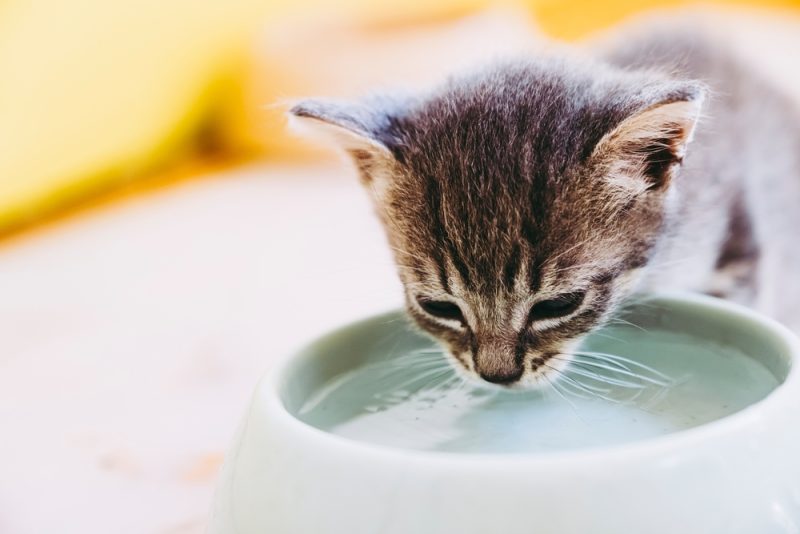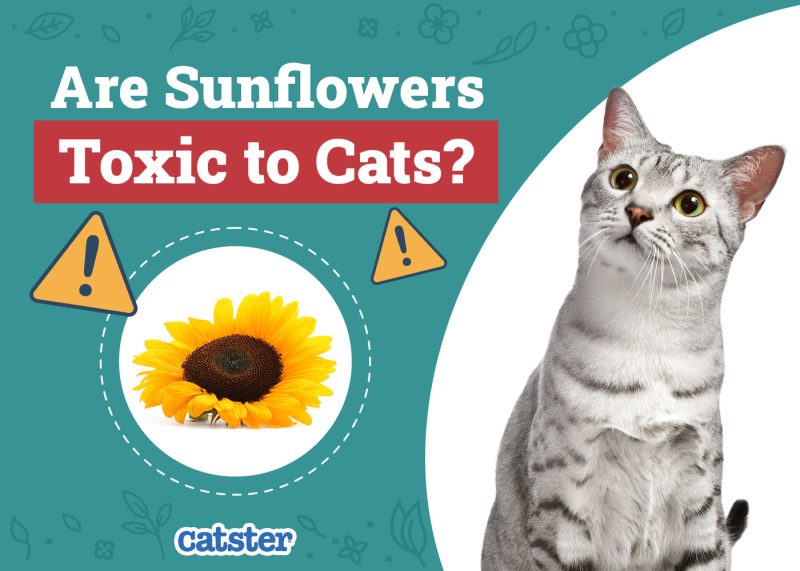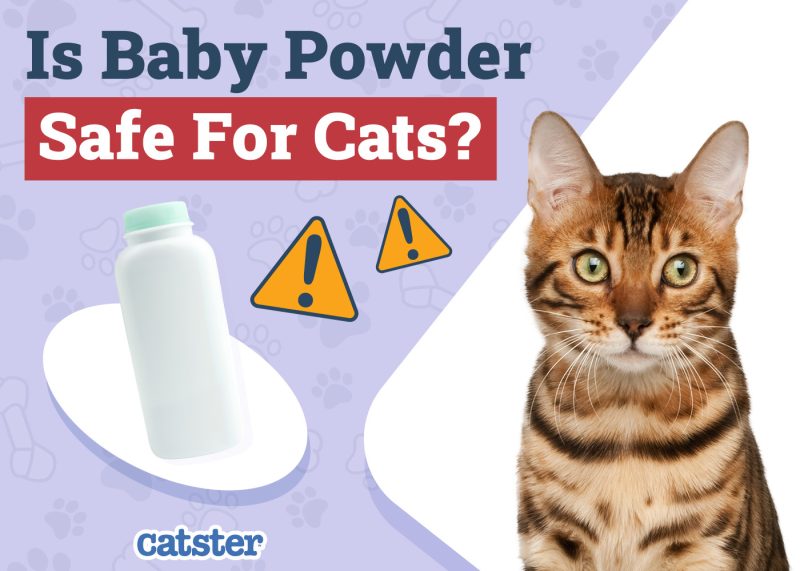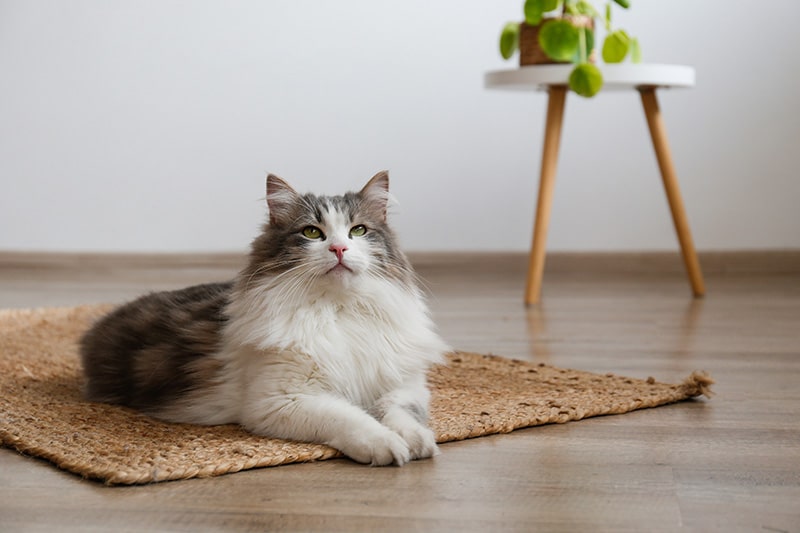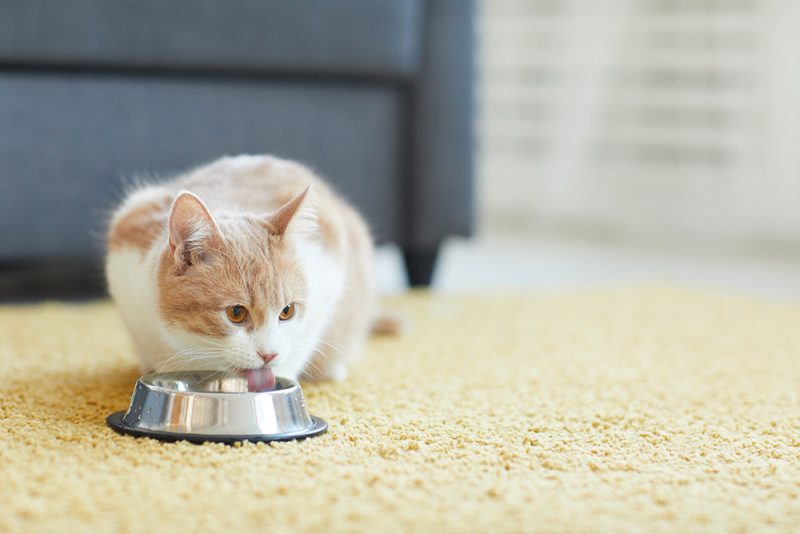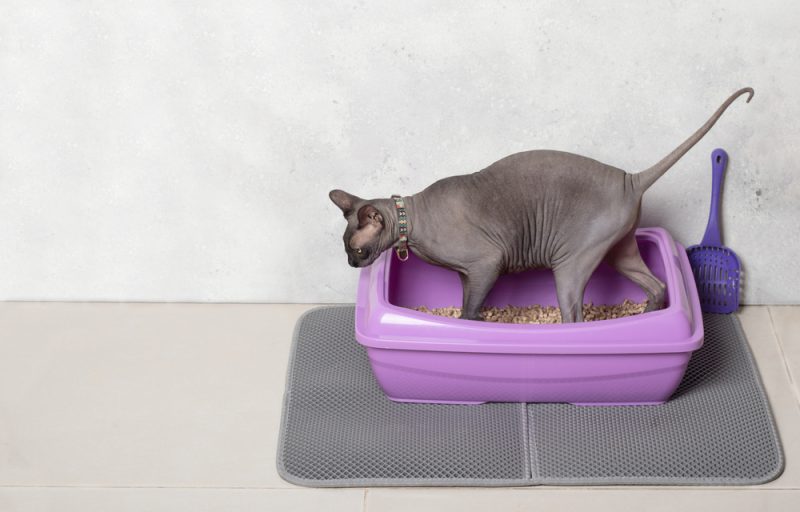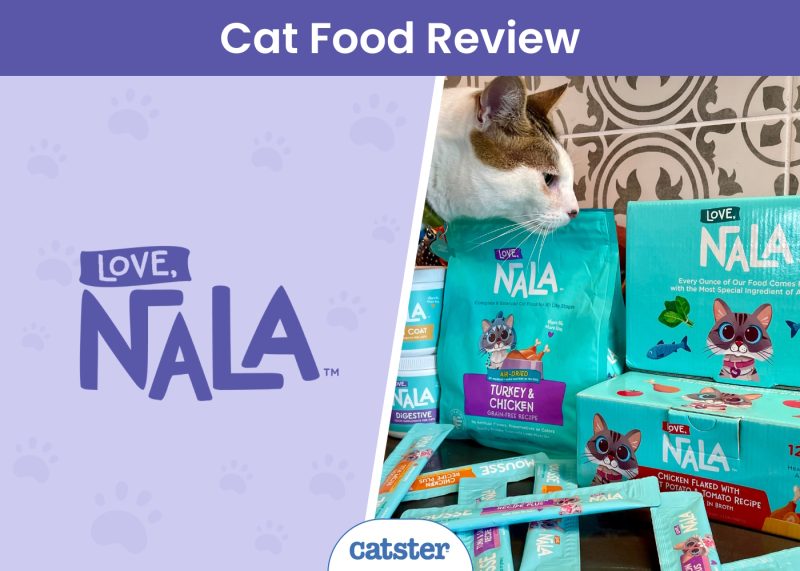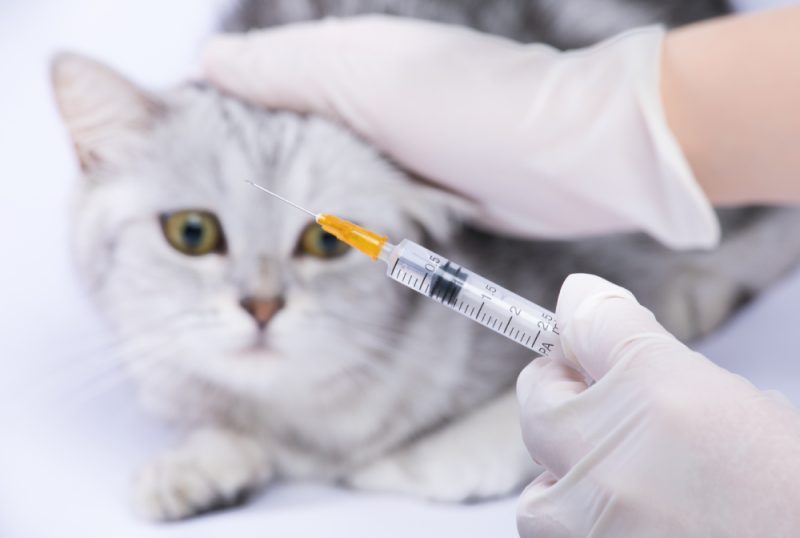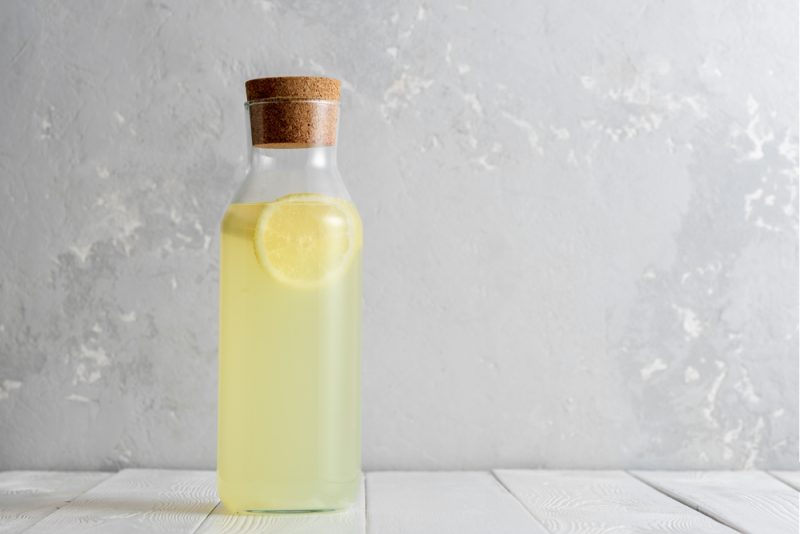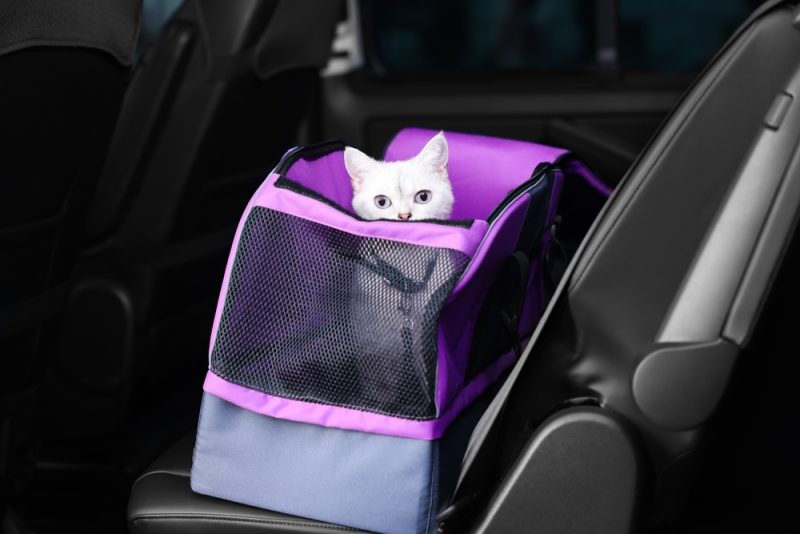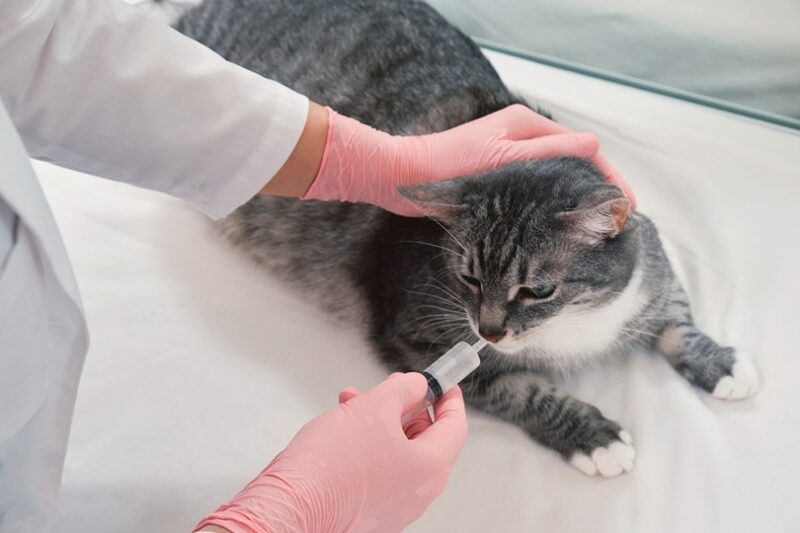We’ve all been there. You go to crack open a can of crab to make some dip, or maybe whip up some delicious crab cakes, and your cat is already there, eyeing you and half expecting to get some crab. Luckily, not all cats are like that, and most will show absolutely no interest in whatever it is you’re eating. But is it safe to give your kitty a piece of crab, or should you keep this meat away from them?
Being a wonderful fur parent, you looked it up first instead of guessing. So, can cats eat crab? Well, yes, in moderation and occasionally, but it will largely depend on the type of crab and the way it’s prepared. Too much of any “good thing” becomes a bad thing! In this article, we look at the dos and don’ts of feeding our feline friends delicious crab meat.
Before offering your cat any new treats or human food, it’s important to consult with a veterinarian, as oftentimes, it may not be appropriate for them, particularly if they have any underlying health issues. It’s unlikely that your cat will reap any benefits from crab meat.
While it’s ok to feed them some as a treat from time to time, there are some precautions that you should take to ensure you aren’t feeding them something that will make them sick, which brings us to our next question:

Is Crab Meat Good for Cats?
Cats are carnivores who have evolved to exist primarily on a diet that comes from prey. That means that they need high protein content, moderate amounts of fat, and a low carb intake, as they really don’t have a dietary requirement for carbs. While crabs do have a decent amount of protein and some fat, alongside the water content, the question remains: is it good for your cat?
Some cats can and certainly love to eat a touch of crab from time to time—and that’s about all they should really be indulging in. Crab meat makes a great special-occasion treat for our furry buddies if prepared adequately, but it shouldn’t be considered a staple food by any means. Too much crab too often could contribute to a stomach upset while not benefiting your cat in any way, but a little bit here and there won’t hurt them and makes a tasty snack for a curious cat.
One thing to keep in mind is the type of crab and how it’s prepared. A piece of crab meat intended for your kitty should be cooked and never contain any seasonings or spices whatsoever, and it should be cooked plain. Make sure you pull a piece of meat off well before you season it because many herbs and spices, such as garlic, while tasty to us, are toxic to our furry friends.
If you need to speak with a vet but can't get to one, head over to PangoVet. It's an online service where you can talk to a vet online and get the advice you need for your pet — all at an affordable price!


Can Cats Eat Raw Crab?
This is an easy one—no. You should refrain from feeding a cat raw crab or other seafood that has not been thermally processed because various pathogens, such as bacteria, viruses and parasites, may be present. This can cause your little kitty to get very sick, and nobody wants that. You should always cook the meat to ensure that all those harmful kinds of pathogens and oceanic parasites are dead and gone. Just give them a little bit of what you’re having—the meat.
You should not give your cats the legs and shells to eat because they are very difficult to chew and digest, may lead to mouth and teeth damage, and are a choking hazard. Most cats won’t attempt to eat the shell on purpose, but in licking the taste off, some more playful cats may try to hold them in their mouth, play with them, and could inadvertently eat some. Pieces of the shell may lead to gastrointestinal blockage if swallowed. Shell can also be contaminated with various environmental bacteria, and licking it could lead to a stomach upset. But what about when it comes to imitation crab meat?
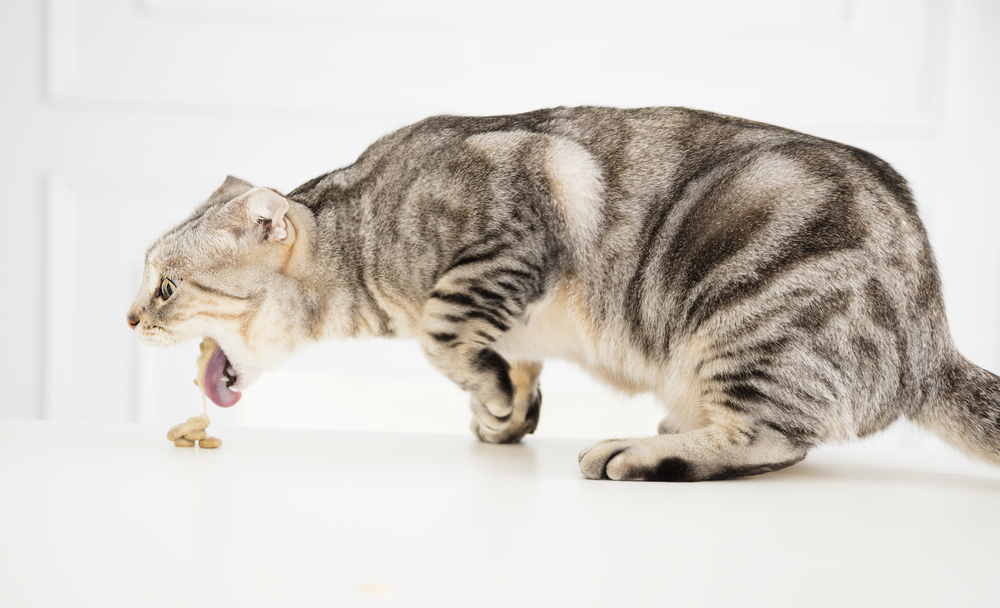
Can Cats Eat Imitation Crab?
Imitation crab meat is something that people often buy because it’s cheaper than the real thing. Cats might have an absolutely amazing sense of smell, but they may not appreciate the difference between imitation crab meat and the real thing—which begs the question: Can they have some?
When it comes to imitation crab meat, a couple of problems arise. To break this down, we must look at the nutritional content of the fake crab meat. Imitation crab meat is usually made from something called surimi. It’s basically the same thing as a sausage or a hot dog, but with fish meat.
The thing about imitation crab meat is that it is higher in carbs and the added salt and sugar content along with the preservatives and flavorings makes crab meat fairly inadvisable to feed your cat. It’s kind of like giving them fast food—it won’t necessarily make them sick right away, and they may enjoy it. But when you look at it in the long run, you really don’t want to give them very much of that stuff.
So, if imitation crab—which is made of miscellaneous fish meat—isn’t great for your cat, can they eat other alternatives?
Is Lobster Safe to Feed Cats?
Well, if you’re looking for an alternative that will save you money, this probably isn’t the way to go. The good news, however, is that yes, much like crab, a little bit of cooked lobster meat can be an occasional treat for a cat. Actually, lobster has a bit more nutritional value than crab because of some of the valuable amino acids present in the meat; however, it does not contain all the essential amino acids that cats require and certainly can’t replace a complete and balanced animal protein diet.
Also, much like crab, it needs to be cooked and free of seasonings and additives that could be harmful or even toxic. Also, never let them near the shell, as it’s a potential choking hazard.
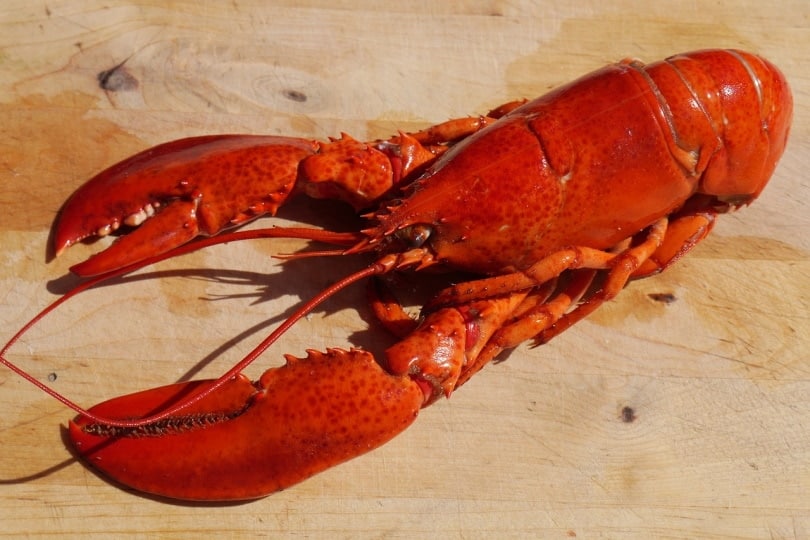
Is Seafood Safe for Cats?
There are many kinds of fish that people commonly consume and are considered in fact safe for cats—on a few conditions. Firstly, we’re not talking about anything exotic here—just commonly eaten fish like tuna, salmon, sardines. These oily kinds of fish are OK for your cat in moderation, but consult with your vet before incorporating them in your cat’s treat menu. Not all fish is safe for cats, and always remove all the bones before offering cooked fish to your kitty.
Raw fish should not be offered to cats, as besides potentially dangerous bacteria, such as Salmonella and Listeria, that can cause a serious digestive upset, some types of raw fish, particularly freshwater fish, crustaceans (which includes crab), and shellfish, contain thiaminase. This is an enzyme that breaks down thiamine or vitamin B1, and eating raw fish and seafood on a regular basis will lead to thiamine deficiency in cats and neurological signs. Some parasites, such as Anisakis worm, which is a public health concern, may be present in raw fish as well.
Raw fish is also very rich in fatty acids, too much of which can be harmful. Mercury build up is another concern when talking about fish and seafood, and it’s important to avoid blue-fin tuna, shark, and swordfish that tend to eat other fish and accumulate more significant mercury levels.
Source your fish responsibly, as unfortunately, some farmed fish is contaminated with chemicals such as PCBs that are harmful for human health, so they cannot be considered safe for cats either.
The same precautions apply to raw shellfish, and this should never be offered to cats. Another thing to consider is that cats can be allergic to seafood, just like people, but there are limited reports on such occurrences. Always pay close attention to your cat when you give them new treats.

Conclusion
Crabmeat and some other kinds of seafood can be a nice occasional treat for your cat if you exercise the proper precautions—and since you’re here reading this, we can be sure that you are. When our little friends come barging around demanding snacks and treats, it can be hard not to just fork over the goods.
While well-intentioned, it’s never a good idea to give any animal any food or treats if you don’t know that it is good for them. Good on you for stopping to check—now, if you haven’t seasoned it, (or burned it!) go ahead and give them a little treat. It’s fun to spoil them, and with a little due diligence, it can be perfectly safe as well.
But remember, cats must not be fed any raw seafood under any circumstances. Parasites and harmful bacteria present in raw fish and seafood can wreak havoc on the digestive system and cause untold discomfort, or worse, so always be careful to cook fish and seafood thoroughly first.
